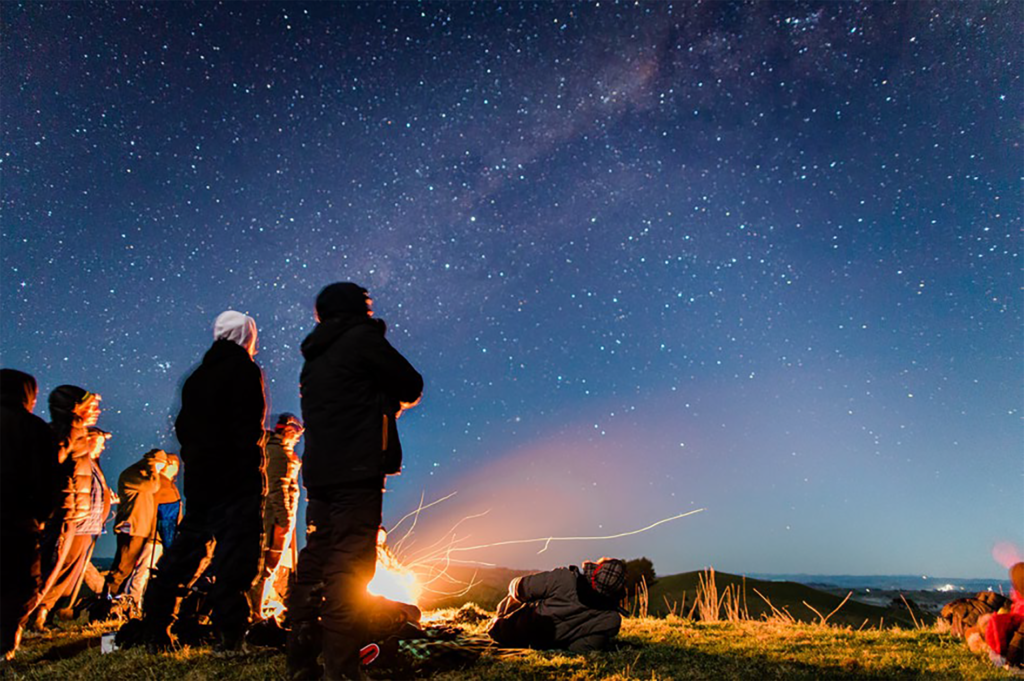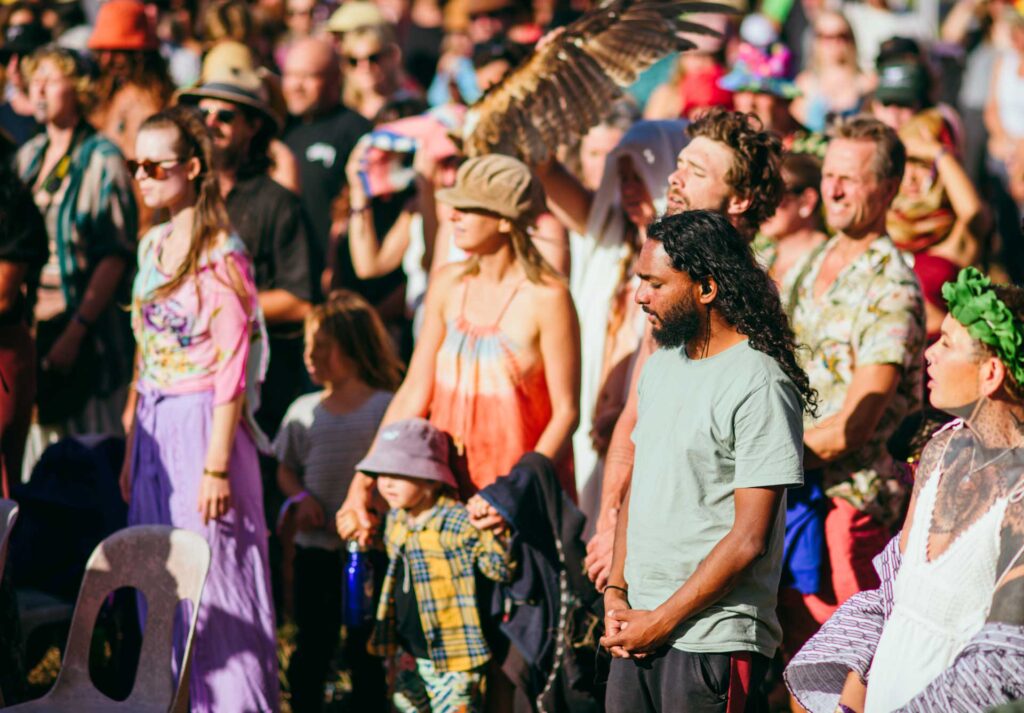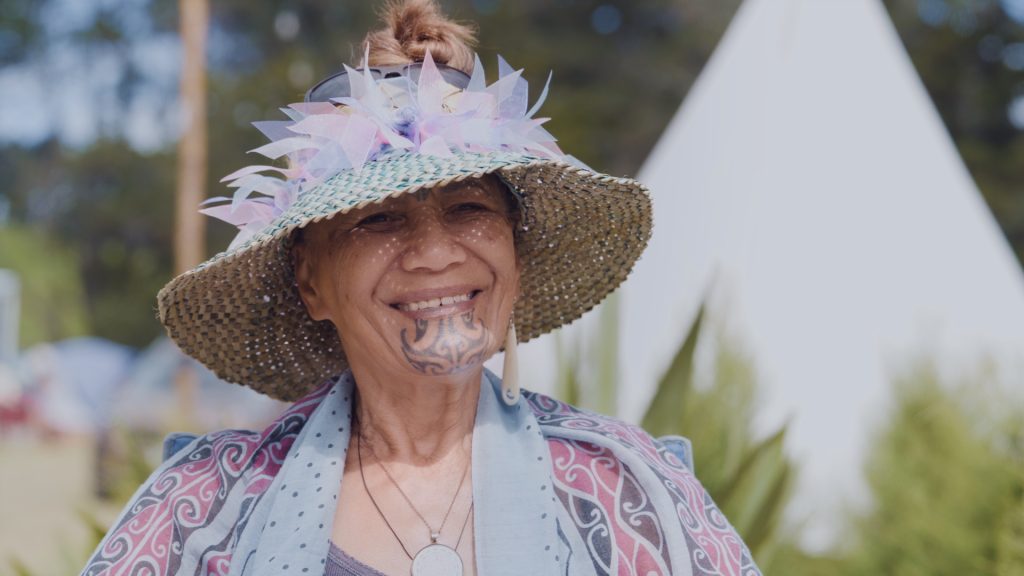Embracing Matariki: A New Year’s Revolution In Reclaiming Sovereignty
As we find ourselves in the heart of Matariki season in Aotearoa New Zealand, a profound shift is taking place. While much of the world clings to the arbitrary dates of the Gregorian calendar, we’re reclaiming our connection to the natural rhythms that have guided our ancestors, regardless of where we are from, for centuries. This is Matariki – and it’s more than just a celebration. By embracing Matariki as our New Year’s milestone we are reclaiming our sovereignty over how we mark the passage of time. We’re aligning ourselves with the natural cycles that govern our unique corner of the world, sparking a revolution in how we honor our place in the cosmos.
The Rise of Matariki
Matariki, also known as the Pleiades star cluster, reappears in our southern skies each year in late June or early July. This celestial event signals the start of the New Year, a time of reflection, renewal, and community. The Matariki period typically spans several days, with the exact dates varying slightly each year based on the lunar calendar and star observations. (In 2024, the Matariki period falls roughly between June 29th and July 2nd, with the public holiday on Friday, June 28th.)
But Matariki is more than just a date on a calendar. It’s a powerful reminder of our connection to the natural world and our responsibility as kaitiaki (guardians) of the land, sea, and sky.
Breaking Free from Colonial Impositions: An Evolution of Celebration
For generations, our annual celebrations have been dictated by traditions that not only misalign with our southern hemisphere seasons but also represent a lingering legacy of colonialism. The conventional New Year’s Eve on December 31st falls in the middle of our summer – a time when nature is in full bloom, not resting and renewing. More importantly, it’s a stark reminder of the cultural overlay imposed by colonialism, which went to great lengths to decimate the roots of Māori culture and suffocate its revival until recently.
As we become more cognizant of the repercussions of colonialism and settler-colonialism, we naturally gravitate towards rituals and celebrations that are intrinsically tied to our land and our history. Embracing Matariki is not just about aligning with natural cycles; it’s an act of cultural reclamation and resistance against the artificial impositions of an imperialist mindset.
The most potent weapon in the hands of the oppressor is the mind of the oppressed.
Steve Biko, South African Anti-apartheid Activist
This shift echoes the struggles and triumphs of anti-colonial movements worldwide. Steve Biko, the South African anti-apartheid activist, once said: “The most potent weapon in the hands of the oppressor is the mind of the oppressed.” By reclaiming Matariki, we are liberating our minds from imposed calendars and celebrations, asserting our right to mark time in ways that reflect our own cultural heritage and connection to the land. From the resistance of Hone Heke and the peaceful protests at Parihaka to the global fight against cultural erasure, the revival of Matariki stands as part of a larger, ongoing process of decolonization.
However, this reclamation isn’t about reverting to the past. It’s an evolution towards a future that honors the wisdom intrinsic to this land while embracing our multicultural reality. As postcolonial scholar Ngũgĩ wa Thiong’o suggests, decolonization is not about rejecting all foreign elements, but about centering our own culture and placing it in meaningful conversation with others. Matariki offers all New Zealanders, regardless of their cultural background, an opportunity to engage with the natural rhythms of Aotearoa New Zealand and create new, meaningful traditions.
As the reggae artist Midnite powerfully expresses in “Drastically Resistant to Rome,” we are “drastically resistant” to the imposed narratives and calendars that do not reflect true connection to our place. By embracing Matariki as our New Year Celebration, we assert our right to reconnect with traditions that truly reflect our collective identity and our shared connection to our places.
The Wisdom of Matariki
Matariki brings with it a wealth of insights relevant to all New Zealanders:
- Interconnectedness: We recognize our place within the broader ecosystem and our responsibilities to it.
- Reflection: We take time to assess the past year and set intentions for the coming one.
- Community: We come together to share food, stories, and plans for the future.
- Regeneration: We align ourselves with nature’s cycles of rest and renewal.
- Cultural Exchange: We create space for sharing and learning from diverse traditions.
A Collective Journey
As we celebrate Matariki this year and look forward to future celebrations, we invite all New Zealanders to join in this evolving tradition:
- Explore ways to incorporate Matariki into your personal or family celebrations.
- Learn about the significance of Matariki from Māori perspectives.
- Share your own cultural traditions that align with themes of renewal and community.
- Consider how we can collectively create new traditions that honor our connection to this land and its seasons.
The Future of Celebration
Imagine a future where our major celebrations are aligned with the world around us. Where our new year begins as nature awakens from its winter slumber. Where our diverse communities come together not because a calendar dictates it, but because the stars and the land tell us it’s time.
This is the promise of Matariki. It’s not about preserving tradition in amber, but about nurturing a living, evolving culture that honors our past while creating a more connected and sustainable future for all New Zealanders.
As we observe Matariki this year and in the years to come, let’s remember that we have the power to shape how we mark time and celebrate our place in the world. This revolution and evolution begin with us all.
Mānawatia a Matariki! Happy New Year to all!



